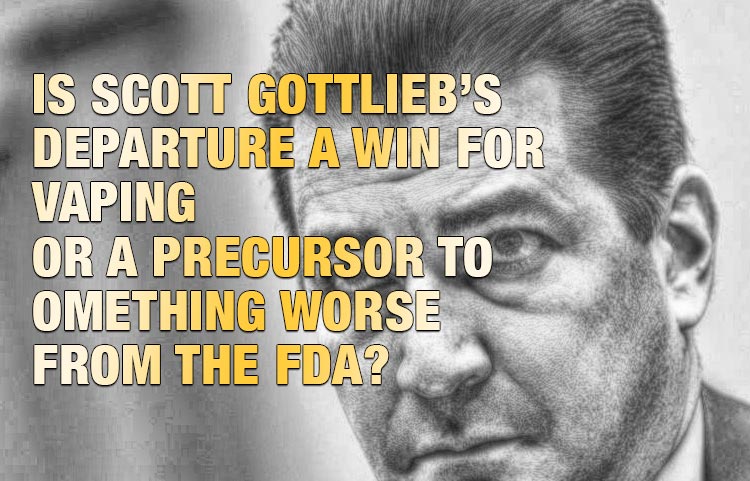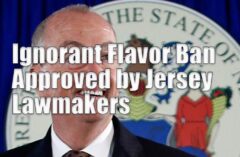In a move that gave the vaping industry a momentary sigh of relief, Scott Gottlieb, the commissioner of the Food and Drug Administration (FDA) who made the fight against teen vaping a cornerstone of his role, submitted a surprising resignation after nearly two years on the job.

Though he is remaining on until a suitable replacement can be found, Gottlieb’s decision seemed fairly concrete, even with his efforts making headway to pressure the entire vaping industry to improve its results in stopping underage use of vape products.
Many of Gottlieb’s efforts need to be lauded – most notably his ability to reduce generic drug prices, as well as his handling of food inspections during the longest government shutdown in history. But his particular needling of leading vape companies to produce results in the fight against teen vaping rang a little empty – especially to companies that adhered to best practice standards, and responsible adults that felt penalized by his efforts.
While we certainly agree with Gottlieb’s intentions here, and his reasoning for wanting to stop underage vaping was sound. But his liberal use of the term “epidemic” – and the borderline fear mongering that he imposed on companies like JUUL Labs Inc. – created an environment where no company could possibly feel like he was working for a solution that satisfied all parties.
And, as we’ve said before, there’s simply no reason for responsible adult vapers to suffer because less-scrupulous retailers make their products available to underage users. This is not a “needs of the many outweigh the needs of the few” situation, yet all seemed hopeless down this trajectory.
Perhaps worst of all is that Scott Gottlieb – prior to working with the FDA – served on the boards of several health and pharma companies, including one that sold vaping products. As someone who once fought for the rights of those customers, one would expect a more balanced approach to ending teen vaping. But one would be wrong.
So, what’s next?
Time will tell. While there’s a possibility of getting a more open-minded commissioner in place – one that would take a more-level approach to handling these concerns, many plans have already been set in motion within the FDA. This means there’s little chance that the current goals and standards for leading vape companies will be reneged upon anytime soon.
But, in the name of optimism, our fingers are crossed that the “second wave” of potential rulings and requirements will be more lenient toward these companies, which – by and large – are adhering to every letter of Gottlieb’s law. JUUL Labs, while not having a “magic solution” to the problem of teen vaping, has already limited its flavor selections, and done its due diligence in making its products harder to obtain by underage users.
In short, what else can these companies do? And what will the FDA ask of them, regardless of feasibility? Indeed, we’re at a precarious point in our industry’s young history. And with new bans and limitations being imposed on the local and city level every day, we can only hope the incoming FDA commissioner will embrace the vaping industry for what it has done for adult smokers, and not only the unfortunate news we see about teen use each news cycle.





